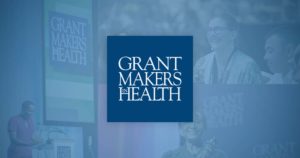Humana Foundation Advances Equity Through Community-Engaged Research Practices
Grantmakers In Health’s Maya Schane spoke with Heather Hyden and Soojin Conover of the Humana Foundation about the Foundation’s recently published report, Strengthening Science and Community Impact Through Equitable Research Practices. The report examines innovative research methods adopted by the Foundation’s partners to promote health equity in public health research through community-engaged research practices.
Collaborating for Impact: Providing Trust-Based Grantmaking and Technical Assistance to Support Local Resilience to Extreme Weather Events
In the last few years, there has been an increased number of extreme weather events, including wildfires, tornadoes, hurricanes, floods and heatwaves in the United States. In 2023, the United States experienced 28 disasters that cost at least $1 billion, the largest number of billion-dollar disasters in a single year on record (Smith 2024). While some areas of the country are more susceptible to these threats, there are no regions immune to disasters. According to a recent Gallup poll, 37 percent of adults in the United States report they have been personally impacted by at least one extreme weather event in the last two years, which is higher than the 2022/2023 survey result at 33 percent.
Integrating Health Services for People with Co-Occurring Mental Health and Substance Use Disorders
Care for people with co-occurring conditions remains terribly fragmented. Three separate systems exist—health, mental health, and substance use services— to care for each individual problem, each one with its own set of norms, culture, regulations, reimbursement process, and accountability.
2012 Terrance Keenan Institute Fellows Announced
GIH is pleased to announce the 2012 Terrance Keenan Institute for Emerging Leaders in Health Philanthropy fellows.
Dental Hub and Spoke Project Links Kansans in Underserved Areas to Dental Care
Kansas, like many states with a vast rural geography, has substantial areas with little or no access to oral health services. Studies of the Kansas dental workforce show 93 of 105 counties do not have enough dentists to serve their population.

